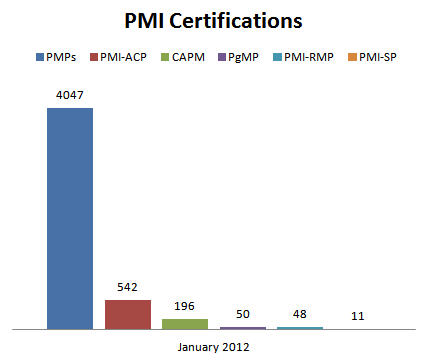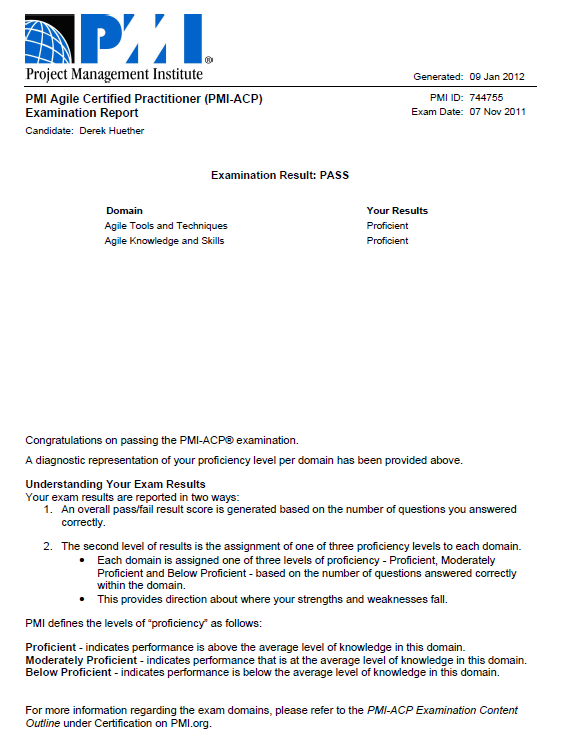After each PMI Agile Certified Practitioner (ACP) workshop that I offer, I refine the format to make it better. I learn some new content from the ACP Support team at the PMI Agile Community of Practice and some I learn directly from the students in my class. Originally, my key objective for the class was to provide an introduction to Agile; strictly positioning the class as a knowledge-based learning workshop. The 3-day workshop was a learning experience filled with lecture, group discussions, hands on exercises, and videos. Based on feedback through formal course evaluations and talking with the students, I actually added performance-based learning as an additional key objective. (ie. getting a passing score on a certification exam versus just learning new approaches to deliver value to customers). It's been an interesting progression. The name of the workshop started as "Agile Fundamentals: PMI-ACP Prep". The feedback from the classes was there was not enough exam prep. I didn't want to create a PMI-ACP Bootcamp but I did want to help my students. I changed the name to PMI Agile Certified Practitioner Workshop and then scattered relevant questions throughout the 3-day course. I also added an ACP Practice exam so people could get a real idea of what the test is like. The last thing I did was give each person attending my class a free Premium account with my tool AgileFlashcards.com.
The results from my latest class were very positive with comments like I liked the fact that this course provided great learning about Agile practices, fundementals and not ONLY ACP prep. Great amount of balance.
I give David Bland some of the credit for getting my class where it is today. I used his Course Canvas to visualize my course and make it better. I'm sure you could use this visual tool to improve all kinds of things. Just remember that you don't need to reinvent the wheel to make improvements. You just need to find the right tool for the job. I found such a tool, with the Course Canvas.











